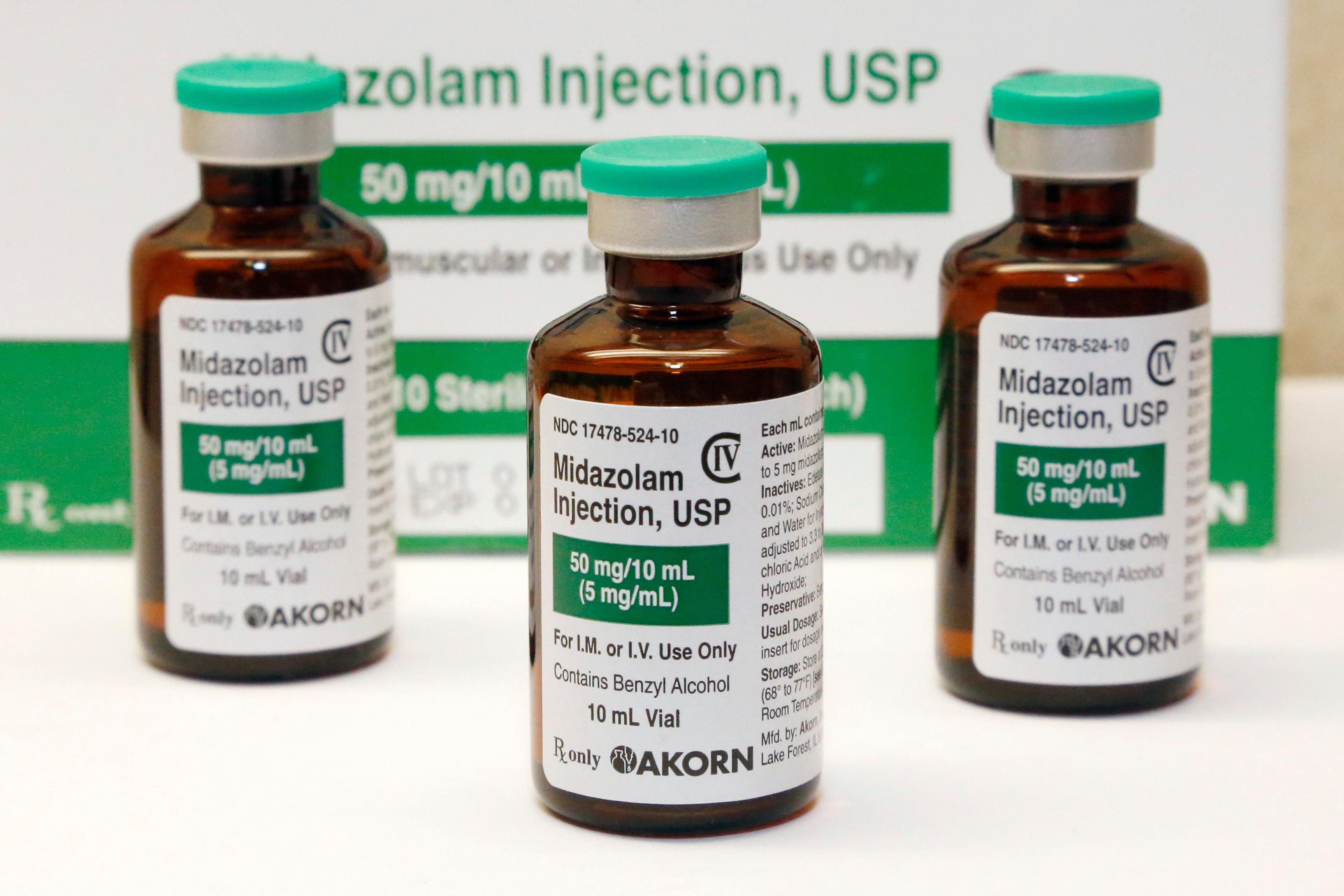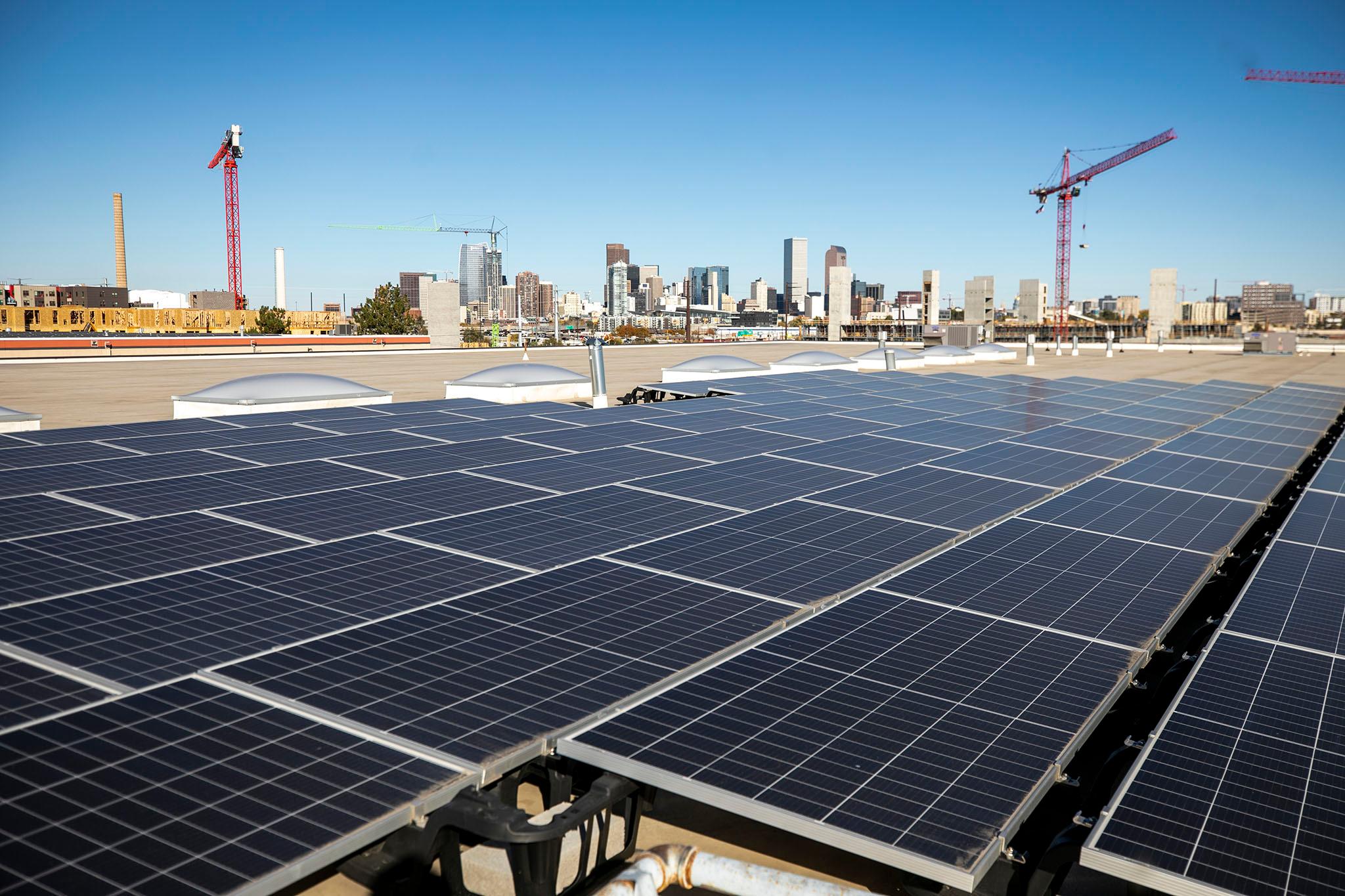
Colorado lawmakers on Monday concluded a special legislative session that was focused on tax relief for homeowners — but when the smoke cleared and the last calculations were completed, it was clear that Democrats’ tax policy reforms had gone far beyond property taxes.
The package of new laws will indeed deliver about $430 million of tax cuts for homeowners across the state. Gov. Jared Polis signed the tax cut and other bills Monday evening.
Among them was an even bigger tax benefits package, totaling nearly $500 million, for lower-income Coloradans. They will get larger TABOR refunds and expanded tax credits for the working poor. Those changes will be paid for, in effect, by the state’s wealthiest residents.
“I’m proud to provide immediate property tax relief for all Coloradans and help those who need it the most," Polis said in a statement. "Thanks to these actions, more hardworking people can stay in the communities they love or grew up in. I appreciate the legislature's thoughtful work to save people money and their ability to pass laws during this urgent special session before Thanksgiving to provide property tax relief.”
For most Democrats, it was something to celebrate — a change that would make the state’s tax system more progressive, at least for the next year.
“Our state’s tax code is broken. It’s an upside-down tax code,” said Rep. Javier Mabrey, a Democrat. “This matters. It helps renters. It helps homeowners who are retired.”
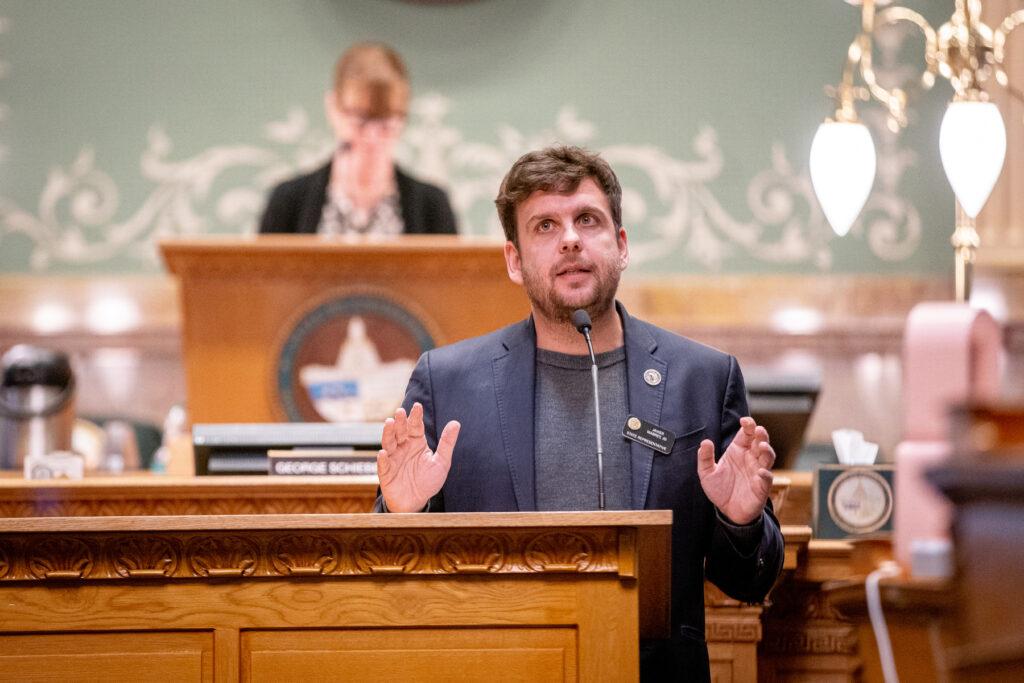
Republicans, meanwhile, decried the policy changes as a socialist-style wealth transfer, and they claimed it was counter to the will of voters, who had just rejected Proposition HH, containing some of the same ideas.
“The people who pay little or nothing in taxes get the majority of the benefits and the real taxpayers got little or nothing,” said Sen. Larry Liston, a Republican. (Practically everyone pays taxes in some form, especially sales and other taxes.)
"This is taking money from one person to another, this is legislating money from one person to another," said Rep. Ken deGraaf, a Republican.
How the money’s flowing
Democrats made three big changes to the tax system for tax year 2023:
- They granted equal TABOR refunds to all taxpayers next year
- They expanded the state’s Earned Income Tax Credit
- They reduced property tax rates
First, there’s a change to how the state pays TABOR refunds next year. Typically, those refunds are paid out in tiers. The highest-income Coloradans get substantially higher refunds since they generally paid higher tax bills in the first place.
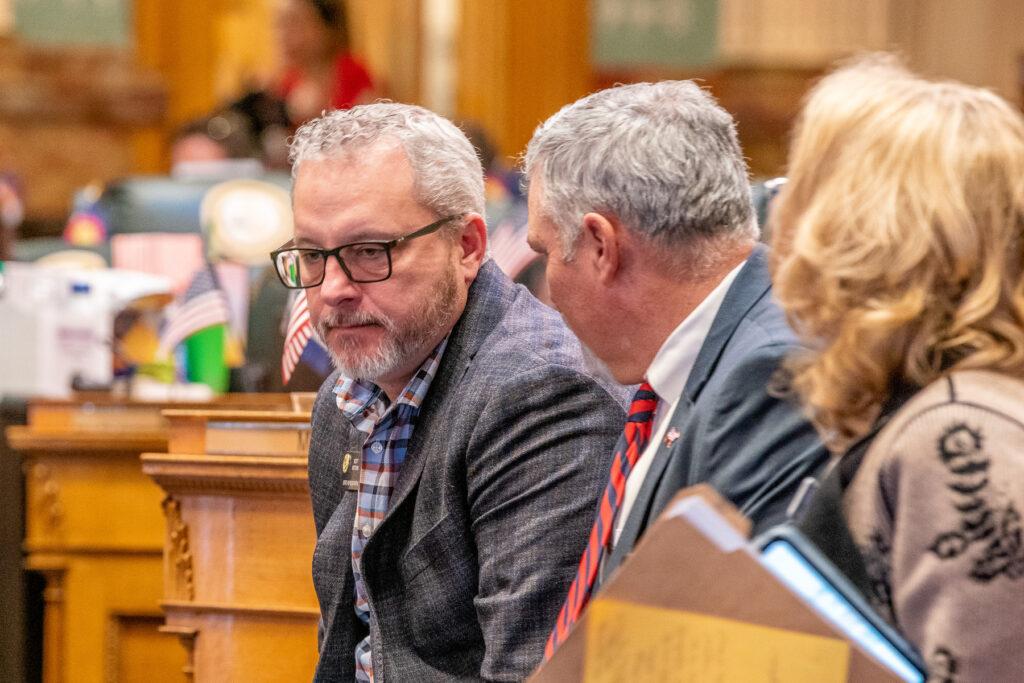
But next year, the state instead will pay “flat” refunds, dividing up TABOR refunds equally among tax filers.
That’s something that was done once before, in 2022.
This time, every refund will be worth about $800 — a net gain of more than $200 for those in the lowest income tier, and a loss of $1,000 for those in the highest tier. (You can double those amounts for households with two tax filers.)
The second change is the expansion of the state’s Earned Income Tax Credit, which targets working low-income families. The change will result in $183 million being paid to that group.
Biggest benefits for lower-income households
The changes will have the strongest effects on the two ends of the income scale.
Looking at the changes to TABOR refunds and tax credits, the majority of the special session’s benefits will go to those households making less than about $51,000. They stand to gain anywhere from a couple hundred to a couple thousand dollars, thanks to the larger TABOR refunds and the earned-income credit. (Much of the variability comes from the earned income credit; its expansion will be worth little to some families, but it could pay more than $1,800 extra to some of the poorest working families if they have several children.)
Altogether, that lowest income tier, which includes more than 1.3 million tax filers, will see roughly $474 million in new tax benefits altogether. About $300 million of that sum will come from their larger TABOR refunds. The rest will come from the expansion of the earned income credit.
Meanwhile, the TABOR changes will have negative impacts on those earning more than $104,000. They could lose out on anywhere from $100 to $2,000 of refunds, depending on their income.
The greatest collective costs will fall on the highest income tier, a group of about 280,000 households that make more than $309,000. Altogether, the TABOR-related changes will cost them nearly $300 million — making up a majority of the cost impact.
“It takes from the rich and gives to the poor. In the short term, we put a little more money in those lower-income folks’ pockets, but we are not implementing this policy in a vacuum,” said Rep. Gabe Evans, a Republican. He argued that higher taxes on the wealthy would drive them out of the state and lead to an economic collapse that hurts poor people.
Property tax cuts
However, that’s not the end of the math. Some of those wealthier families may still come out neutral or ahead since they also will be getting a property tax discount from the special session.
The legislature ultimately decided to grant every homeowner a $55,000 discount on the assessed value of their homes. They also lowered the statewide assessment rate — which determines how much of the remaining value will be taxed — from 6.765 percent to 6.7 percent.
Those changes apply to the current tax year, for which taxes are paid next year.
Thanks to lower property tax rates, a homeowner with a half-million dollar house might save a couple hundred dollars, while a house worth $5 million might save about $500. However, those savings will only cancel out a portion of next year’s tax bill increases, which are driven by higher property values.
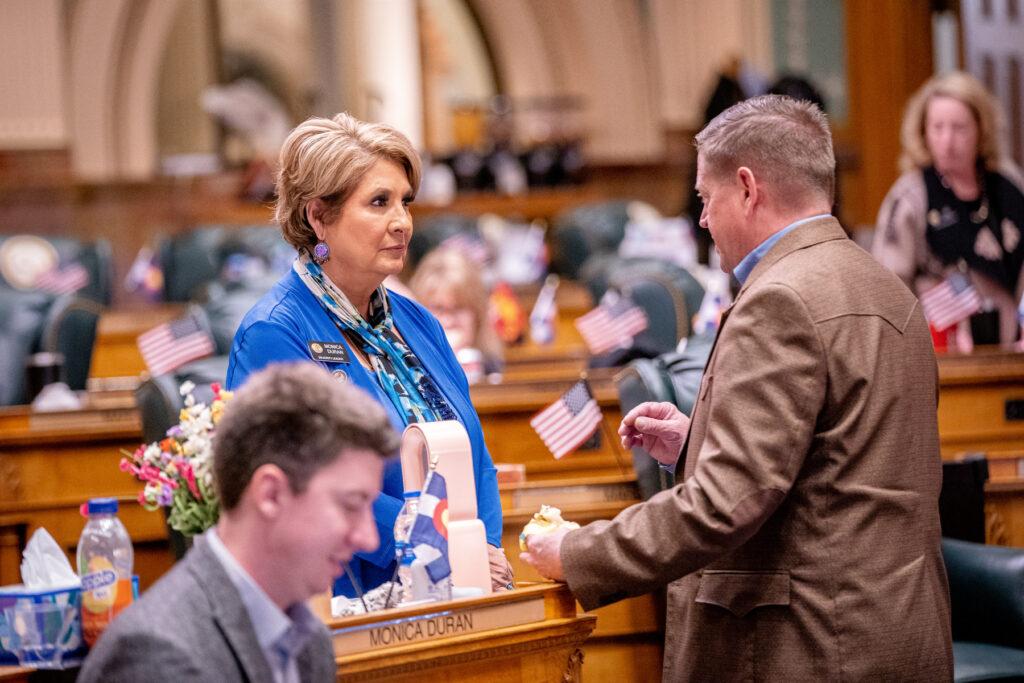
Rep. Emily Sirota, a Democrat, said the package offered benefits for all.
“I think we did something for everyone here and that Coloradans can feel good about,” said Sirota.
The changes to property tax rates will have effects on the budgets of local governments and schools. The state will give about $145 million to schools, bringing them back up to the revenue they would have received under the old property tax rates. And it will also provide about $54 million of “backfill” money to local governments and other local tax districts.
That should be enough to fully replace property tax dollars for areas that have seen their property tax revenue grow slower than 10 percent in the current reassessment cycle — mostly rural areas. It also will fully replace affected funding for all ambulance districts and fire districts, lawmakers said.
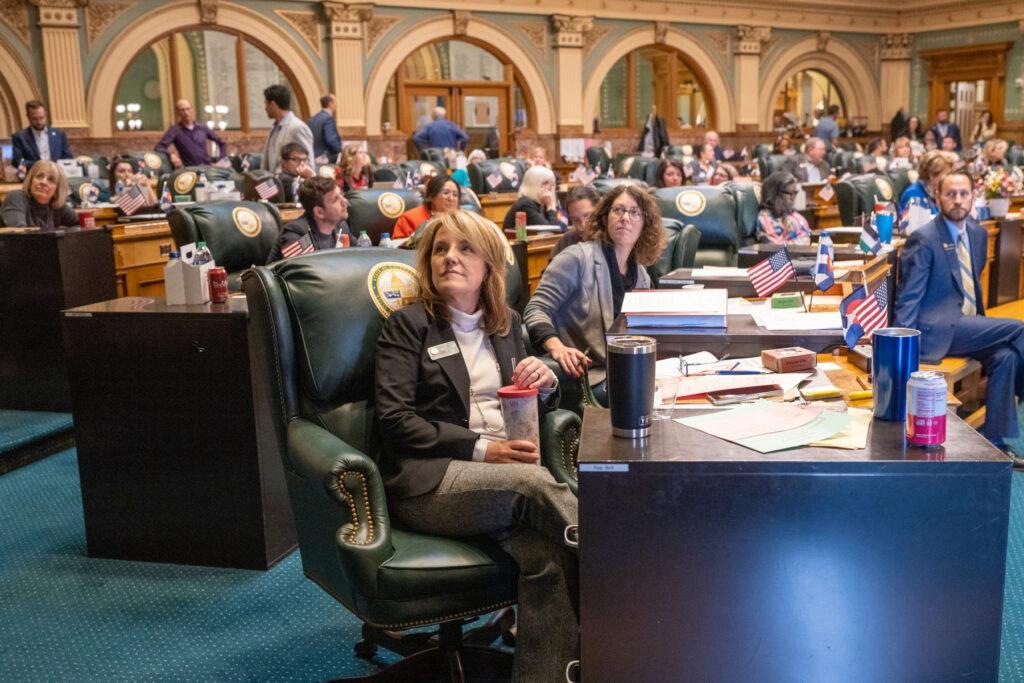
Other, faster-growing local governments will get either partial backfill or no backfill. The theory is that big cities like Denver will still come out ahead — even with lower property tax rates, they’ll still see significant gains in revenue due to the growth of the tax base.
Republicans said the property cuts were too small; they had proposed a much larger reduction package, which would have been paid for by spending some of the state’s fiscal reserves.
“Just like we have been doing since the end of the 2023 session, we’ve been here fighting for Coloradans, fighting to ensure that we save you money and that we don't overburden you with taxes,” said Sen. Barb Kirkmeyer, a Republican.
The final vote on part of the package was briefly delayed after Democratic Rep. Elisabeth Epps of Denver sought to amend one bill to prevent any funds for food benefits being spent on products from occupied Middle East territories including the West Bank, East Jerusalem and the Gaza Strip.
She then moved into the gallery with a group protesting Israel's bombing campaign against Palestinians and attempted to prevent Republican Rep. Ron Weinberg from defending Israel from the well of the chamber, calling out that he was "out of order" because he was not speaking directly to the contents of the bill. The situation was defused and Epps left the chamber.
Renter relief and grocery help
Democrats also dedicated $30 million to a relief program for renters who are in financial trouble. And, separately, they enrolled the state in a federal program that could offer $35 million to help lower-income families buy groceries next summer— a change that will cost the state about $7 million to administer.
The tax and TABOR changes are only effective for one year. The debate over the state’s long-term approach to taxes is already well underway.
The special session included the formation of a new panel to draft property tax proposals for next year. Meanwhile, several groups already are proposing their own reforms to the property tax system that could appear on the Nov. 2024 ballot
Editor's note: This article was updated on Nov. 21, 2023 to correct an estimate on the effect of the property tax change.

